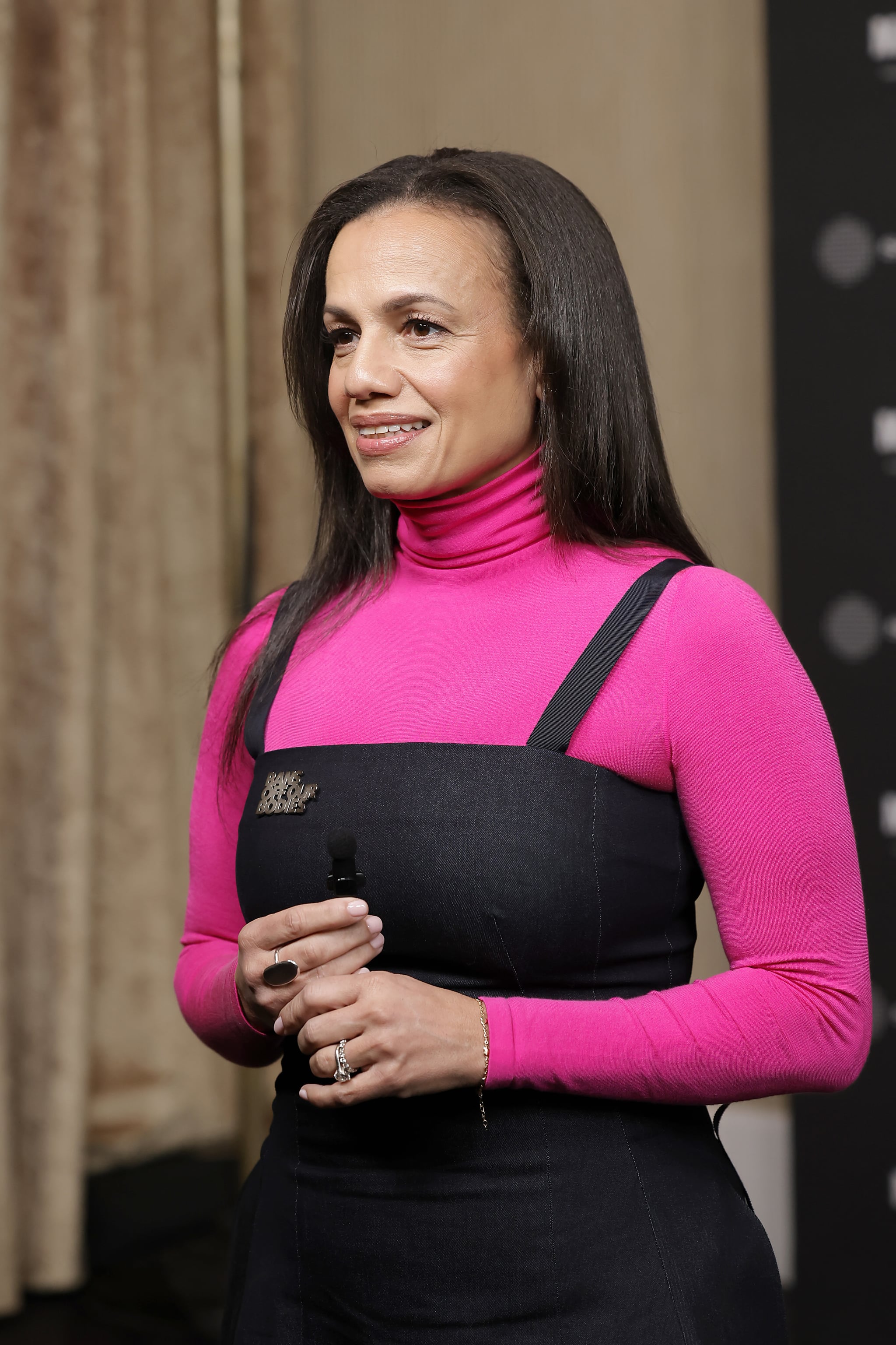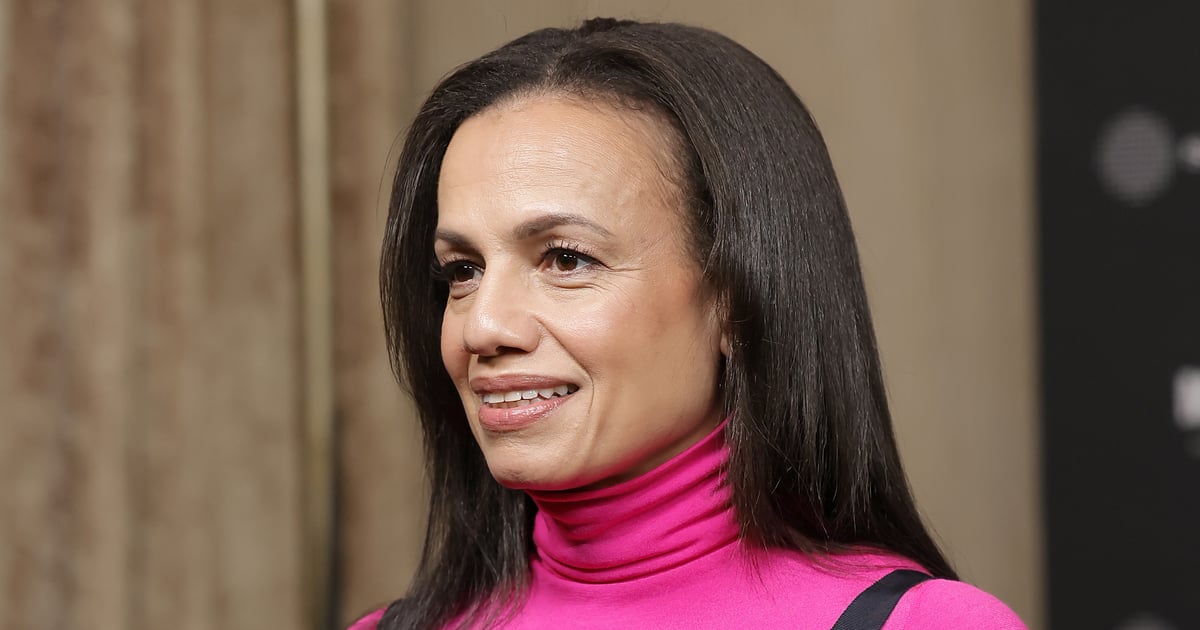
Since the overturning of Roe v. Wade in June 2022, reproductive rights have continuously been under attack. Just two weeks ago, the Alabama Supreme Court ruled that frozen embryos created through in vitro fertilization are considered children, shutting down IVF clinics across the state. In March and April, the US Supreme Court will hear two major cases — one on access to the abortion pill, and another deciding whether women can seek abortion care under the Emergency Medical Treatment and Active Labor Act (EMTALA).
Alexis McGill Johnson, president and CEO of the Planned Parenthood Action Fund and the Planned Parenthood Federation of America, says these restrictive efforts are both alarming and discouraging. But she’s hopeful and impassioned to fight back.
On Feb. 28 at the 2024 Makers Conference, hosted by Makers, Yahoo’s community-focused media brand that works toward accelerating equity for women in the workplace, McGill Johnson moderated discussions about women’s reproductive rights, bodily autonomy, maternal health, and menstrual health, highlighting what’s at stake in the upcoming election. Afterward, she sat down with POPSUGAR to discuss the critical women’s issues at hand, envision a better future around reproductive freedoms, and underscore the importance of your vote. Read the conversation below.
POPSUGAR: We’ve seen that the overturning of Roe was just the beginning. What has been your response to these continued restrictions on women’s reproductive rights?
AMJ: I would say shocked, but not surprised. You want to believe that they won’t take it yet another step further, particularly after they’re seeing the fights, right? They’re seeing the pushback. They’re seeing the ways in which every time reproductive freedom is on the ballot, we are winning. For me, what that speaks to is that it’s really never been about any particular angle on reproductive freedom. It’s really about power and control.
PS: In a panel, you and Hillary Schneller, senior staff attorney at the Center For Reproductive Rights, spoke about how Roe was never enough, and that you’re hoping for better for future generations in terms of reproductive freedom. What does that look like for you?
AMJ: A vision of a world where you can decide whether and when to become a parent or start a family, and obviously the how — you should have access to medical care that is equitable, ideally free, and really centers the experience of so many of the people who have been the most harmed, who are living in these deserts that we’re building policy around. It would be having mifepristone in your medicine cabinet next to the Tylenol. It would be having conversations using the word “abortion” freely and often because it’s part of reproductive healthcare. It would be abortion back inside of reproductive freedom and back inside of healthcare where it belongs. That’s the world I want to live in.
PS: What do you hope comes next for reproductive justice in the short term?
AMJ: We’re in 2024, so our main job this year is to ensure that there is a governing majority that supports reproductive freedom and is willing to remove the filibuster in order to pass federal legislation. That means we will have to work tirelessly to secure the Senate with that filibuster in mind and expand the reproductive freedom lead in the house, which is entirely possible. Bring back the Biden-Harris administration, which has been a great partner around fighting for reproductive freedom. That will give us our first bite of the apple in 2025 with federal legislation that will not just restore Roe, but build it back better in that same vision that I just named.
“Our bodies are literally on the line right now.”
PS: Why it is so critical for women to vote in this upcoming election? What would you say to women voters who feel especially discouraged in this ongoing fight for rights?
AMJ: Our bodies are literally on the line right now. You cannot underscore the devastation that we have seen over the last few years with the overturning of Roe and the impact on our everyday reproductive experiences. The Alabama case alone should illustrate how even the things you don’t think are going to be jeopardized are being taken away or limited with abandon. If you care about being able to make your own private medical decisions, if you understand how they impact your ability to lead to pursue the education on your own timeline, to go for the promotion, to make decisions about whether your family is the size that you want or that you’re not ready to be become parent, that’s why you should be voting.
Politics is what got us here. We can’t get out of this crisis without engaging with politics and democracy. I don’t think it’s an accident that we often talk about abortion and democracy together. If you’re discouraged, I would tell you to look at Kansas and Ohio. I would tell you to look at Virginia, Wisconsin, states that are diverse politically, demographically, geographically, but are all energizing people coming together to solve for this issue. I actually see there’s a lot of hope to be had in watching power form from the grassroots up and really make systems to respond to us. It’s not just that we need to respond to the new laws that are being set. I would totally get energized around that.
PS: Beyond showing up to vote, what can folks individually do to fight for reproductive freedoms?
AMJ: You can’t not engage in democracy. You may need to show up in your congressman’s office and write a letter, and create the demand and the expectation, so that they have something to respond to. You can focus on care. You can focus on supporting abortion funds and organizations like Planned Parenthood and providers who are out there on the front lines doing the work.
Something that we don’t talk about as much is how the women’s movement evolved through circles. It started through conversations around how the personal is the political, and translating those everyday experiences into political power. If you’re having a conversation in your salon, in the grocery line, at work, or in the boardroom, you’re contributing to shifting the culture one conversation at a time.
PS: Aside from abortion, what do you think are other issues we should be focused on and informing ourselves of?
AMJ: All the things that are related to what actually keeps us equal. Access to birth control is responsible for a third of all our wage gains, so that impacts pay equity. Where we are showing up in political leadership. We tend to see better reproductive policies when you have legislators that have broader gender diversity. Gun violence is something that we are hearing the deep connection, not just to decide whether and when to become a parent, but also how to raise a child and not be afraid. There are lots of synergies between the movement in ways that we wouldn’t necessarily name or charge, that are really important for us to start to draw those lines so that we’re not single-issue thinkers.
PS: Is there anything you’re optimistic about as you look toward the future of reproductive rights in the US?
AMJ: It really is the young people. As someone who’s Gen X, I grew up with a set of freedoms, but they were already there. And to be honest, my generation took it for granted that the kind of fight that it takes, or that recognition that rights can be taken away, was not something that was part of our lexicon. It was always progress forward. We have these rights, go earn them, go do the things that folks before you fought for. The fact that rights can be taken away, and that there are generations that understand that and can pass that lesson on, actually gives me a lot of hope, because not only are they showing up now, but they’re also building the muscle to sustain and be vigilant about what that will mean to take them away. I think that’s really valuable.
This interview has been edited and condensed for clarity.
Yerin Kim is the features editor at POPSUGAR, where she helps shape the vision for special features and packages across the network. A graduate of Syracuse University’s Newhouse School, she has over five years of experience in the pop culture and women’s lifestyle spaces. She’s passionate about spreading cultural sensitivity through the lenses of lifestyle, entertainment, and style.
